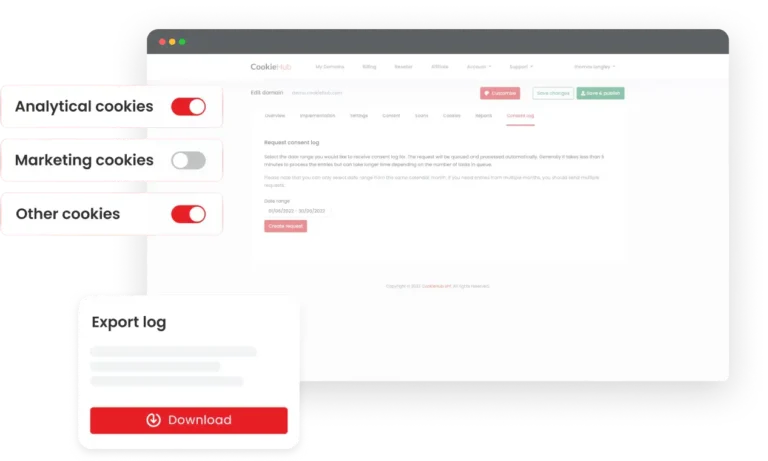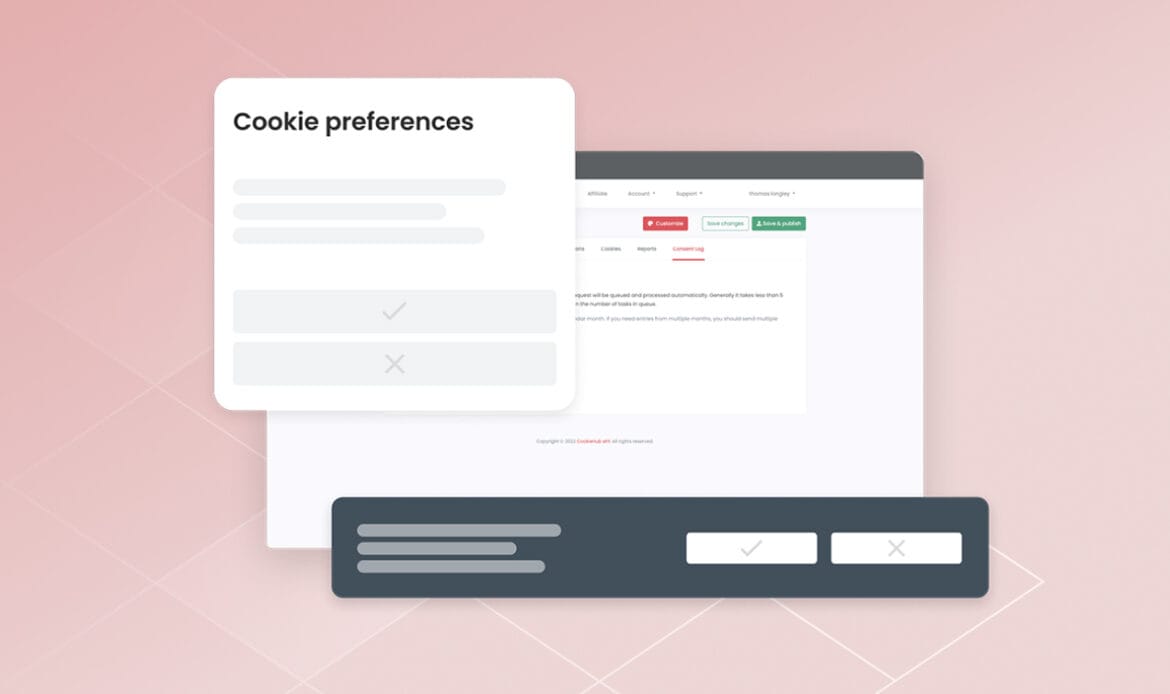As data privacy concerns rise, website owners must stay compliant with regulations and protect user privacy. One of the key tools in this effort is the cookie banner. But do you really need one? This article will break down everything you need to know about cookie banners, their function, and their impact on your website.
Do You Need a Cookie Banner?
The short answer is: Yes, if your website uses cookies to collect or store personal data of users.
Privacy laws, including the General Data Protection Regulation (GDPR) in Europe and the California Consumer Privacy Act (CCPA) in the U.S., require websites to inform users about data collection practices and obtain consent for certain types of cookies, especially those that are not strictly necessary for the website’s functioning.

In particular, if you run marketing campaigns or use analytics tools like Google Analytics, you will need a cookie banner. These tools set cookies that track user behavior, store data on interactions, and collect information for targeted ads. Since these cookies are not strictly necessary for the basic functionality of the website, you must obtain user consent for their use. Read more about what cookies are here.
If you serve visitors from the EU or regions with strict privacy laws, a cookie banner is mandatory.
What is a Cookie Banner?
A cookie banner is a notification that appears on a website when a user first visits, informing them that the site uses cookies. Cookies are small pieces of data that are stored on a user’s device to enhance their browsing experience by remembering login details, user preferences, and tracking behavior for analytics and advertising purposes.
The cookie banner typically:
- Informs users that the website uses cookies.
- Provides details on the types of cookies used (e.g., necessary, analytics, marketing).
- Requests consent for cookies that are not strictly necessary (optional cookies).
- Includes a link to the site’s privacy policy, Cookie declaration or cookie policy for more information.
A key feature of cookie banners is giving users the option to accept, reject, or manage their cookie preferences. Some banners are simple, while others offer advanced options where users can opt-in or out of specific cookie categories, this is based on the country the user is visiting from and based on what consent management system you are using some of them offer a geo-targeting feature for this specific circumstance.
What Are the Risks of Not Having One?
Failure to implement a cookie banner when required by law can result in serious consequences, including:
Fines and penalties
If your site is found in violation of GDPR or CCPA, you could face hefty fines. Under GDPR, fines can reach up to 4% of a company’s annual revenue or €20 million (whichever is higher).
Reputational damage
Not complying with privacy regulations can erode user trust, particularly as consumers become more aware of how their data is collected and used online.
Legal actions
Some privacy laws, such as CCPA, allow users to take legal action if their rights are violated. If your website collects personal data without proper consent, you may be exposed to lawsuits or legal complaints.
Are Cookie Banners Bad for My Website?
While some website owners worry that cookie banners might negatively impact the user experience or result in reduced engagement, the reality is that they can provide several benefits:
Pros
- Builds trust: A transparent cookie policy demonstrates to users that your website respects their privacy. This can improve your brand image and foster loyalty among your audience.
- Ensures compliance: With privacy regulations becoming stricter, having a cookie banner is one of the simplest ways to ensure your site complies with laws and avoids costly penalties.
- Allows for targeted consent: Instead of losing all tracking capabilities, cookie banners allow you to gain consent from users for non-essential cookies like analytics and marketing, maintaining valuable data collection.
Cons
- User friction: Some users find cookie banners intrusive, especially when they’re designed poorly or appear repeatedly on every visit. However, a well-designed, non-intrusive banner can minimize this issue.
- Opt-out rates: Some users may choose to reject non-essential cookies, which can limit the amount of data you can collect for analytics or personalized marketing. However, this is a small tradeoff for ensuring compliance.
How CookieHub Can Help Lower Friction
While cookie banners are necessary for compliance and transparency, they don’t have to disrupt your website’s performance or user experience. CookieHub is a solution that helps you create efficient and customizable cookie banners that comply with privacy laws without compromising website functionality or speed.
Minimal impact
CookieHub’s banners are optimized to load quickly and not interfere with the overall performance of your website. This is crucial, especially if you're concerned about page load times and user retention.
Customizable designs
CookieHub allows you to customize the look and feel of your cookie banner, ensuring it matches your website's branding while remaining compliant. This reduces user frustration, as the banner can be less intrusive and blend seamlessly with your site design.
Compliance made easy
CookieHub automatically helps you manage the consent preferences of your visitors, whether they accept, reject, or manage specific cookie categories. This ensures that your site adheres to regulations like GDPR and CCPA without manual intervention.
Cookie Banners made simple with CookieHub
CookieHub offers an efficient solution for creating cookie banners that are both user-friendly and compliant. By using CookieHub, you can ensure that your site serves cookie notices with minimal friction, keeping your website fast and compliant without compromising the user experience.
Get Started For Free
- 30 day free trial
- No credit card required
